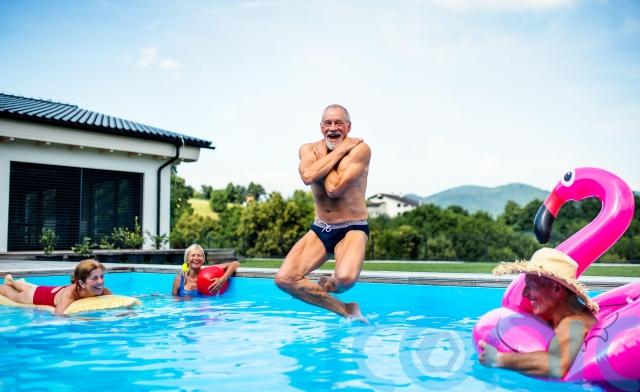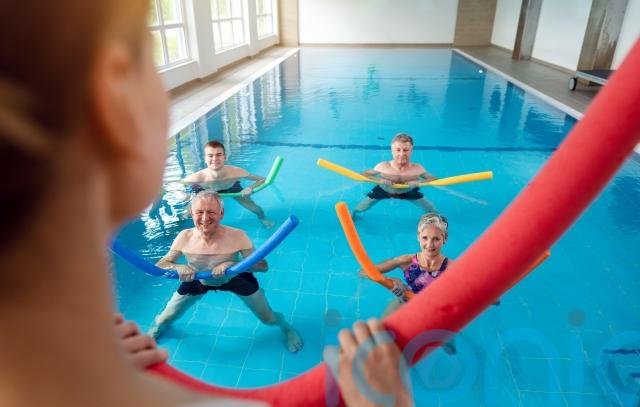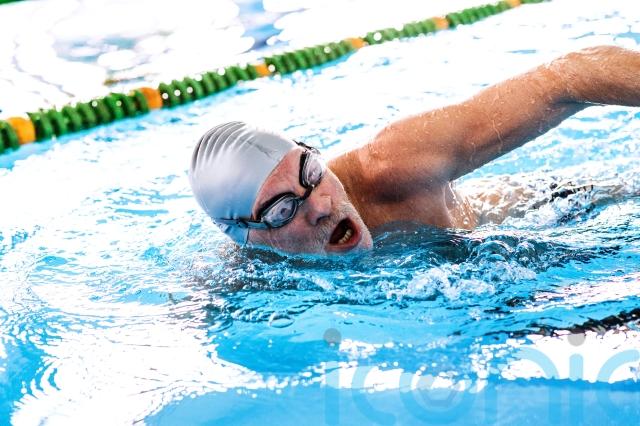
Stripping off and diving into a swimming pool can seem daunting, but braving the water could be one of the best decisions you ever make for your mental and physical health.
Being a strong swimmer is a key life skill that can come in handy when you least expect it, so it’s important to fine-tune your skills and increase your confidence in the pool – especially later in life.
“I’ve seen the difference swimming makes in people’s lives, especially for older adults,” says Emma Kuwertz-Norman, national swim manager at Nuffield Health. “It’s not just about keeping fit; it’s about feeling confident, staying independent and enjoying life to the fullest. Retirement is the perfect time to work on movement and the pool is one of the safest and most effective places to start.”
When you compare swimming to other low-impact activities, like walking or cycling, it really does stand out.
“It’s safer for people who struggle with balance, it works more muscle groups, and because our pools are indoors, it’s something you can do all-year round,” says Kuwertz-Norman.
If you are apprehensive about taking the plunge, here are five key benefits of taking up swimming in retirement and some tips on how to get started…

1) Takes pressure off the joints
“Swimming is kind to the body, especially as we get older,” says Kuwertz-Norman. “The water takes the pressure off your joints, which makes it ideal for anyone dealing with arthritis, osteoporosis, or general stiffness. It’s low-impact but still gives you a full-body workout.
“You’re still building strength, improving flexibility, and getting your heart working – all without putting excessive stress on your body.”
2) Improves mental health
“Mental health is something I really care about, and one of the things I love most about swimming is how much it supports it,” says Kuwertz-Norman. “It’s not just about physical fitness – it genuinely helps people feel calmer, more in control, and more balanced.
“We see it all the time in our pools. People come in carrying the stress of the day, and they leave feeling lighter and more relaxed. Swimming has this brilliant way of helping you reset, both mentally and emotionally.”
3) Creates a sense of community

Although swimming is often viewed as a solitary activity, an outdoor pool or a leisure centre offers a shared space which nurtures connection.
“One of the things I think sometimes gets missed is just how much of a community swimming creates,” says Kuwertz-Norman. “Whether it’s chatting in the changing rooms, joining a group session, or just being around others in the pool, it brings people together in such a genuine way.
“We see it all the time at our sites – friendships forming in the pool, in the café, or just through casual conversations before and after sessions. There are so many swimmer groups who stay for a coffee after their swim, and it becomes part of their routine and a reason to get up, get moving, and connect with others. It gives people structure, purpose, and often leads to lifelong friendships built around something they enjoy and have in common.”
4) Boosts cardiovascular health

“Swimming is a fantastic way to improve your cardiovascular health, helping to strengthen the heart, improve circulation and lower blood pressure – all of which help to reduce your risk of cardiovascular diseases,” says Inez Griffin, senior health and wellbeing physiologist at Nuffield Health.
5) Builds muscle strength
“Swimming enhances strength, particularly around the core, and also improves our posture, both of which are crucial for maintaining balance and preventing falls,” says Francesca Bagshaw, performance physiologist at Nuffield Health Manchester Institute of Health and Performance.
With all those benefits, I bet you are itching to make a splash in your local pool. But if you are a novice swimmer who doesn’t know where to start, here are some tips on how to increase your confidence in the pool safely.
Talk to your GP
“I’d always recommend speaking to your GP before getting started, especially if you’ve got any health concerns,” advises Kuwertz-Norman.
Start slow

“If you’re new to swimming or haven’t been in the pool for years, start slow and don’t worry about technique, speed, or what you look like in your costume,” advises Kuwertz-Norman. “Even just walking through the water or using a float to get started can make a real difference. It’s about finding what works for you and building from there.”
Consider adult classes
“We run adult learn-to-swim programmes that are all about building confidence, step by step,” says Kuwertz-Norman. “We support everyone – from complete beginners who are learning how to float, to competent swimmers who want to improve their technique and swim more efficiently. It’s not a competition – we just want to see more people feeling comfortable and confident in the water.”
Start with gentler strokes
Subscribe or register today to discover more from DonegalLive.ie
Buy the e-paper of the Donegal Democrat, Donegal People's Press, Donegal Post and Inish Times here for instant access to Donegal's premier news titles.
Keep up with the latest news from Donegal with our daily newsletter featuring the most important stories of the day delivered to your inbox every evening at 5pm.